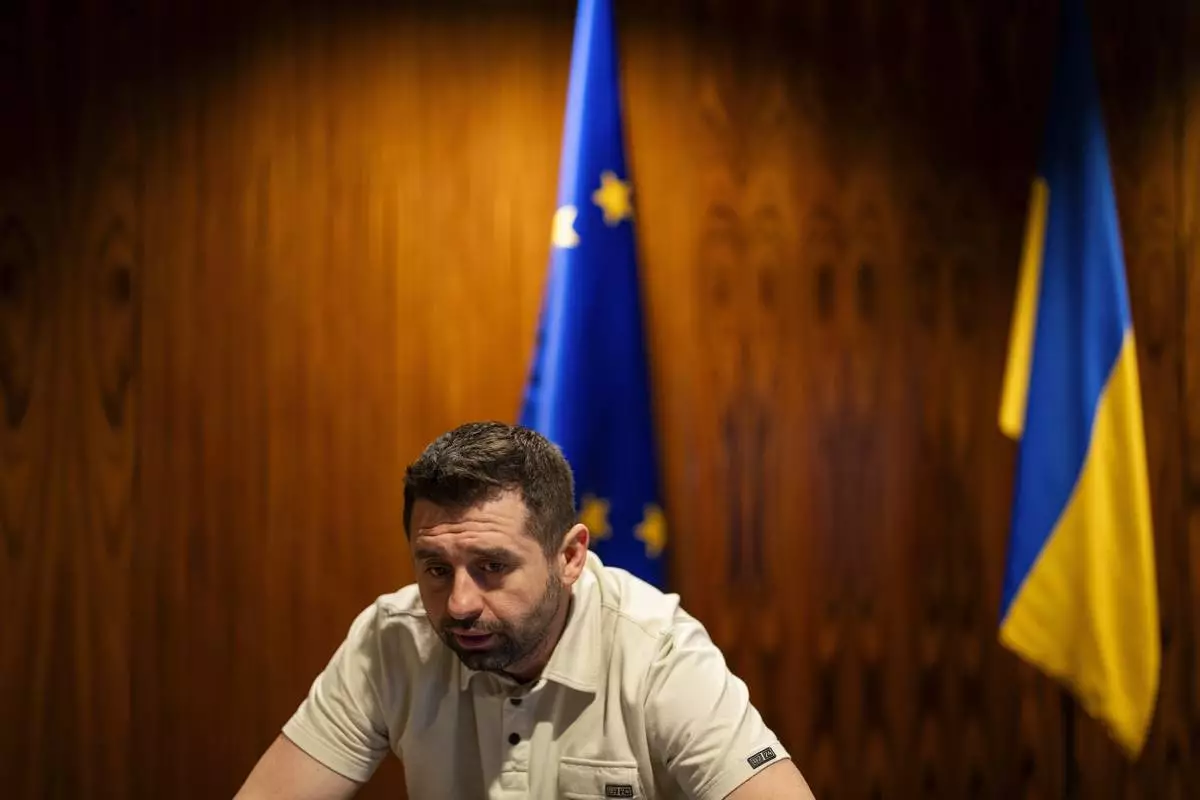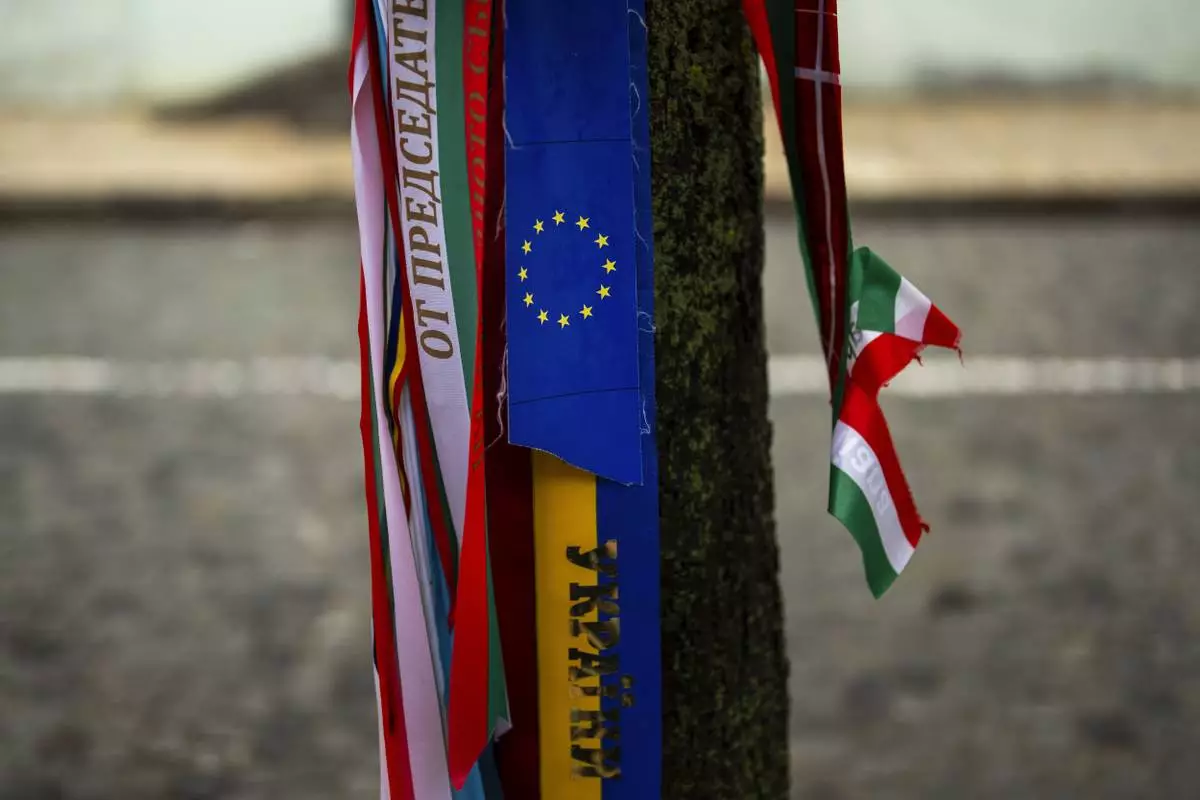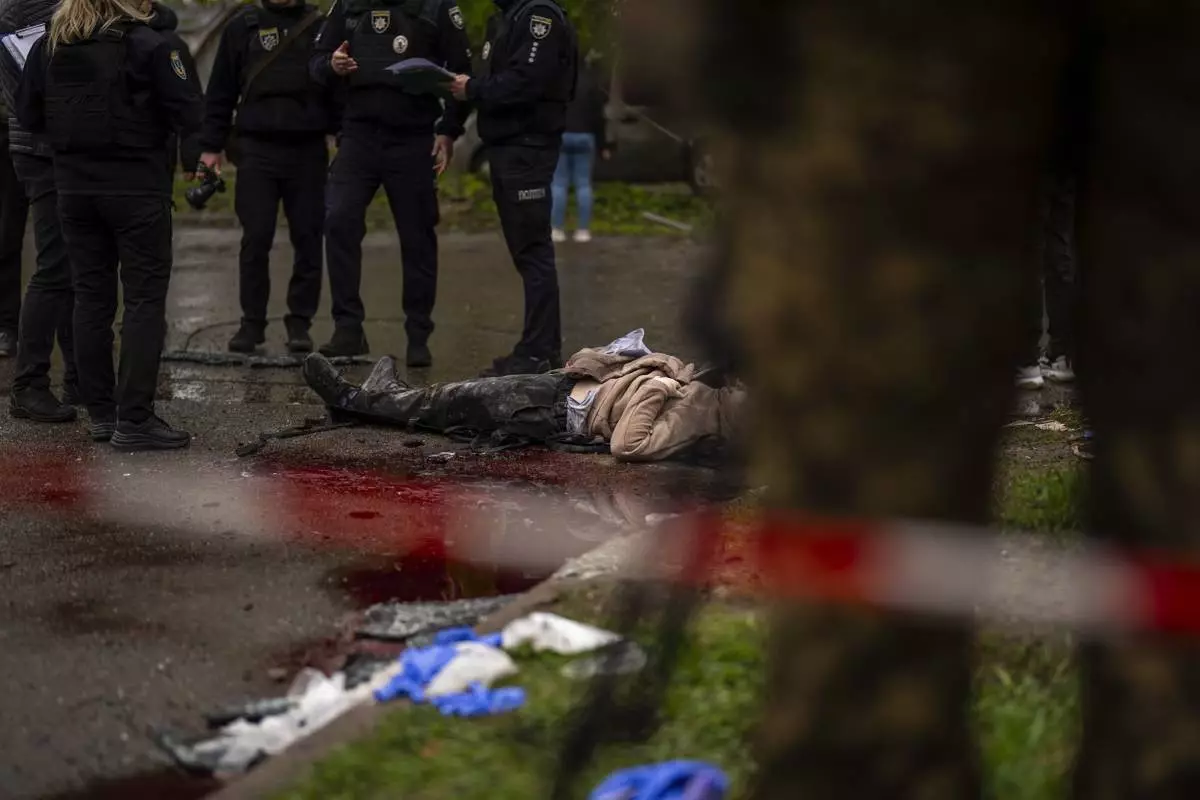Democrats hoping that Wednesday night's first presidential debate of the 2020 campaign would be clarifying probably came away disappointed.
A FEW STRONG MOMENTS
Several candidates, especially Massachusetts Sen. Elizabeth Warren, had strong moments, but there were few instances that either clearly elevated or diminished them significantly.
The sniping was mostly modulated, and the debate was notable for who was not attacked: namely, former Vice President Joe Biden, who is leading in nearly all early polls and is set to be part of the second night of debate Thursday.
The 10 Democrats in the first debate instead focused largely on issues of cultural and economic fairness, with some sharp disagreements. Criticism of President Donald Trump came late, with Washington Gov. Jay Inslee calling him the greatest threat to American security.
Warren wasn't the subject of direct criticism, even when she stood out as being one of only two candidates who said she'd abolish private health insurance.
ECONOMY
The debate kicked off with moderator Savannah Guthrie asking Warren if her many ambitious plans — free college, universal child care and health care — would hurt a booming economy.
"Who is this economy really working for?" Warren replied. "It's doing great for a thinner and thinner slice at the top."
It was soft toss of a question to Warren, and her response was echoed by other Democrats.
"Donald Trump just sits in the White House and gloats about what's going on, when you have so many people that are having trouble affording college and having trouble affording their premiums," said Minnesota Sen. Amy Klobuchar, a moderate who declined to swipe at Warren's ambitious plans.
Former Rep. Beto O'Rourke of Texas slammed Trump's tax cut as part of "an economy that is rigged to corporations and to the very wealthiest."
And Rep. Tim Ryan, who represents several declining industrial areas in Ohio, said, "This issue we're talking about has been going on for 40 years."
Only former Rep. John Delaney of Maryland clearly disagreed and said many of Warren's promises were not realistic.
IMMIGRATION
No issue in the first Democratic debate showcased the contrast with President Trump more than immigration. But the issue also exposed significant rifts among his challengers.
Former Housing and Urban Development Secretary Julian Castro challenged his rivals to join him in rewriting immigration laws so the mere illegal entry into the United States would no longer be a federal crime.
Castro made his most pointed strike at fellow Texan O'Rourke, who notably did not decriminalize illegal migration in his own immigration proposal. "If you truly want to change the system we have to change that section" of federal law, Castro said.
O'Rourke said he wanted to keep the provision so authorities could pursue drug and human traffickers. But Castro cut him off, noting there are separate laws that could be used against those crimes, and the entire stage broke down into crosstalk and shouting. Several other contenders — including Warren, New Jersey Sen. Cory Booker and Washington Gov. Jay Inslee — have already signed on to Castro's approach.
Klobuchar said she'd look at Castro's proposal, while Ryan quickly embraced it.
WORKING CLASS
There was more Spanish than expected. And there were appeals to the working-class voters who abandoned Democrats in favor of Trump in 2016.
O'Rourke showed off his fluent Spanish in his opening statement. Booker countered with his Spanish during a discussion of immigration, and also noted that he's probably the only candidate who lives in a poor, predominantly minority community. (Booker lives in Newark.) Castro spoke in Spanish during his closing statement and talked about saying "adios" to Trump.
New York Mayor Bill de Blasio — who noted he has an African American son — urged the party to "stop acting like the party of elites." Rep. Tim Ryan of Ohio said, "We have got to change the center of gravity of the Democratic party from being coastal and elitist and Ivy Leaguist."
MCCONNELL
Perhaps the hardest question for Democrats to answer was how the candidates would deal with a Republican. Not Trump, but Senate Majority Leader Mitch McConnell.
Republicans have a good chance of still controlling the Senate even if Democrats win the White House in 2020, and it's unlikely McConnell would allow any of the candidates' ambitious proposals on government-run health care or green energy to become law.
Warren promised she had a plan to deal with McConnell, though it seemed to center on rallying public opinion against him. "We have to push from the outside and lead from the inside," she said.
Booker proposed the presidential nominee campaign in longshot states like South Carolina in hopes of snaring enough seats to take over the Senate.
Inslee suggested eliminating the filibuster — which the president cannot do and which would strengthen McConnell's hand if the GOP remained in the majority.
KYIV, Ukraine (AP) — A big, new package of U.S. military aid will help Ukraine avoid defeat in its war with Russia. Winning will still be a long slog.
The arms and ammunition in the $61 billion military aid package should enable Ukraine to slow the Russian army's bloody advances and block its strikes on troops and civilians. And it will buy Ukraine time — for long-term planning about how to take back the fifth of the country now under Russian control.
“Ultimately it offers Ukraine the prospect of staying in the war this year,” said Michael Clarke, visiting professor in war studies at King’s College London. “Sometimes in warfare you’ve just got to stay in it. You’ve just got to avoid being rolled over.”
The U.S. House of Representatives approved the package on Saturday after months of delays by some Republicans wary of U.S. involvement overseas. It was passed by the Senate on Tuesday, and President Joe Biden said he would sign it Wednesday.
The difference could be felt within days on the front line in eastern and southern Ukraine, where Russia’s much larger army has been slowly taking territory against massively outgunned Ukrainian forces.
The aid approval means Ukraine may be able to release artillery ammunition from dwindling stocks that it has been rationing. More equipment will come soon from American stocks in Poland and Germany, and later from the U.S.
The first shipments are expected to arrive by the beginning of next week, said Davyd Arakhamia, a lawmaker with Ukrainian President Volodymyr Zelenskyy’s Servant of the People party.
But opposition lawmaker Vadym Ivchenko, a member of the Ukrainian parliament’s National Security, Defense and Intelligence Committee, said logistical challenges and bureaucracy could delay shipments to Ukraine by two to three months, and it would be even longer before they reach the front line.
While details of the shipments are classified, Ukraine’s most urgent needs are artillery shells to stop Russian troops from advancing, and anti-aircraft missiles to protect people and infrastructure from missiles, drones and bombs.
What’s coming first is not always what front-line commanders need most, said Arakhamia, the Ukrainian lawmaker. He said that even a military giant like the U.S. does not have stockpiles of everything.
“The logic behind this first package was, you (the U.S.) finds our top priorities and then you see what you have in the warehouses,” Arakhamia said. “And sometimes they do not match.”
Hope for future breakthroughs for Ukraine still hangs on more timely deliveries of Western aid, lawmakers acknowledge.
Many experts believe that both Ukraine and Russia are exhausted by two years of war and won’t be able to mount a major offensive — one capable of making big strategic gains — until next year.
Still, Russia is pushing forward at several points along the 1,000-kilometer (600-mile) front, using tanks, wave after wave of infantry troops and satellite-guided gliding bombs to pummel Ukrainian forces. Russia is also hitting power plants and pounding Ukraine’s second-largest city, Kharkiv, which is only about 30 kilometers (some 20 miles) from the Russian border.
Ivchenko said the goal for Ukraine’s forces now is to “hold the line” until the bulk of new supplies arrive by mid-summer. Then, they can focus on trying to recapture territory recently lost in the Donetsk region.
“And probably ... at the end of summer we’ll see some movement, offensive movement of the Ukrainian armed forces,” he said.
Some military experts doubt Ukraine has the resources to mount even small offensives very soon.
The U.S. funding “can probably only help stabilize the Ukrainian position for this year and begin preparations for operations in 2025,” said Matthew Savill, director of military sciences at the Royal United Services Institute, a think tank.
In the best-case scenario for Ukraine, the American aid will give commanders time to reorganize and train its army — applying lessons learned from its failed summer 2023 offensive. It may also galvanize Ukraine’s allies in Europe to increase aid.
“So this just wasn’t about Ukraine and the United States, this really affected our entire 51-country coalition,” said U.S. Congressman Bill Keating, a Democrat who visited Kyiv on Monday as part of a four-member congressional delegation.
Zelenskyy insists Ukraine's war aim is to recapture all its territory from Russia — including Crimea, seized illegally in 2014. Even if the war ultimately ends through negotiation, as many experts believe, Ukraine wants to do that from as strong a position as possible.
Whatever happens on the battlefield, Ukraine still faces variables beyond its control.
Former U.S. President Donald Trump, who seeks to retake the White House in the November election, has said he would end the war within days of taking office. And the 27-nation Europe Union includes leaders like Hungarian President Viktor Orbán and Slovakian Prime Minister Richard Fico, who have opposed arming Ukraine.
Ukraine’s allies have held back from supplying some arms out of concern about escalation or depleting their own stocks. Ukraine says that to win the war it needs longer-range missiles it could use for potentially game-changing operations such as cutting off occupied Crimea, where's Russia's Black Sea fleet is based.
It wants Army Tactical Missile Systems, known as ATACMs, from the U.S. and Taurus cruise missiles from Germany. Both governments have resisted calls to send them because they are capable of striking targets deep within Russian territory.
The new bill authorizes the president to send Ukraine ATACMS “as soon as practicable.” It's unclear what that will mean in practice.
Sometimes, promised weapons have arrived late, or not at all. Zelenskyy recently pointed out that Ukraine is still waiting for the F-16 fighter jets it was promised a year ago.
Meanwhile, Russia is using its advantage in troops and weapons to push back Ukrainian forces, perhaps seeking to make maximum gains before Ukraine's new supplies arrive.
For weeks it has pummeled the small eastern city of Chasiv Yar, at the cost of 900 soldiers killed and wounded a day, according to the U.K. Ministry of Defense.
Capturing the strategically important hill town would allow them to move toward Sloviansk and Kramatorsk, key cities Ukraine controls in the eastern region of Donetsk. It would be a significant win for Russian President Vladimir Putin, who Western officials say is bent on toppling Ukraine’s pro-Western government.
Russian pressure was aimed not just at gaining territory, but on undermining Zelenskyy and bolstering critics who say his war plan is failing, said Clarke of King's College London.
The U.S. aid package decreases the likelihood of a political crisis in Ukraine, and U.S. Speaker Mike Johnson deserves credit for pushing it through Congress, he said.
"He held history in his hands,” Clarke said.
Follow AP’s coverage of the war in Ukraine at https://apnews.com/hub/russia-ukraine

From left, U.S. representatives Nathaniel Moran, R-Tx, Tom Kean Jr, R-NJ, Bill Keating, D-Mass, and Madeleine Deane, D-Pa, talk to journalists during a joint news conference outside Saint Michael cathedral in Kyiv, Ukraine, Monday, April 22, 2024. A newly approved package of $61 billion in U.S. aid may prevent Ukraine from losing its war against Russia. But winning it will be a long slog. (AP Photo/Francisco Seco)

A volunteer makes a camouflage net at a facility producing material for Ukrainian soldiers in Kyiv, Ukraine, Monday, April 22, 2024. A newly approved package of $61 billion in U.S. aid may prevent Ukraine from losing its war against Russia. But winning it will be a long slog. (AP Photo/Francisco Seco)

Davyd Arakhamia, a lawmaker with Ukrainian President Volodymyr Zelenskyy's Servant of the People party, talks during an interview with Associated Press in Kyiv, Ukraine, Monday, April 22, 2024. (AP Photo/Francisco Seco)

A woman rallies to raise awareness on the fate of Ukrainian prisoners of war in Kyiv, Ukraine, Sunday, April 21, 2024. (AP Photo/Francisco Seco)

Ribbons with the colors of the European Union and Ukraine are attached to a tree next to memorial wall of Ukrainian soldiers killed during the war in Kyiv, Ukraine, Monday, April 22, 2024. (AP Photo/Francisco Seco)

The body of a woman killed by Russian bombardment in Chernihiv, Ukraine, Wednesday, April 17, 2024. (AP Photo/Francisco Seco)

Soldiers carry the coffins of two Ukrainian army sergeants during their funeral in Lviv, Ukraine, Tuesday, April 16, 2024. (AP Photo/Francisco Seco)
















